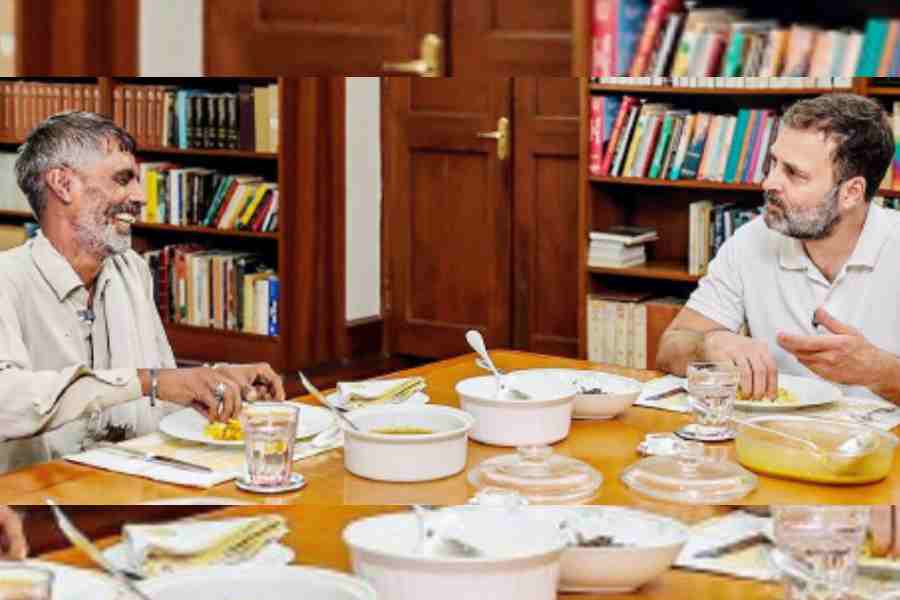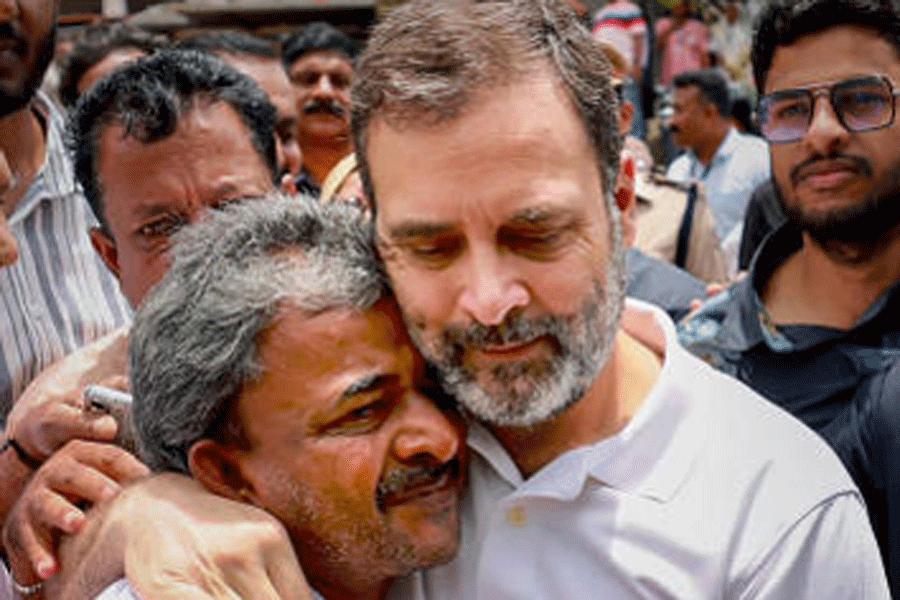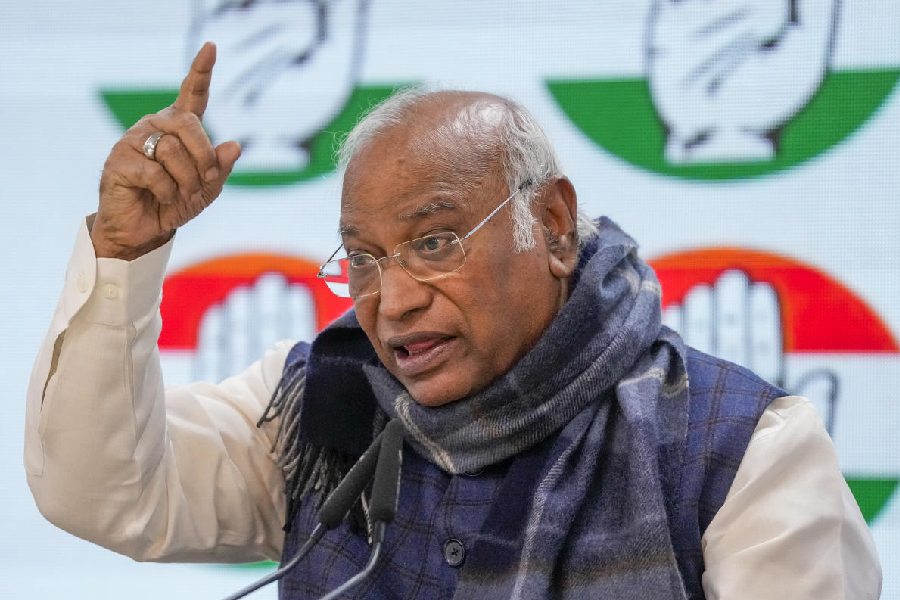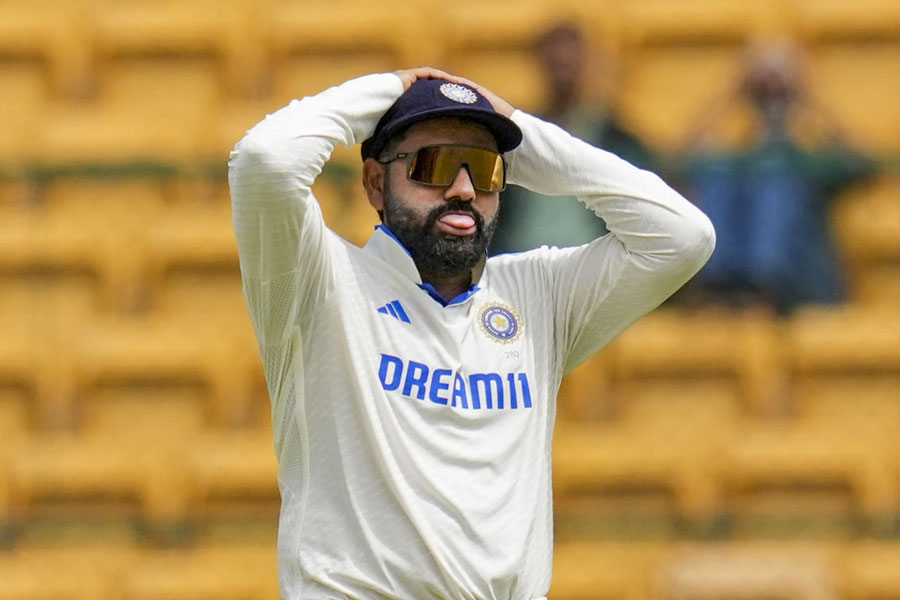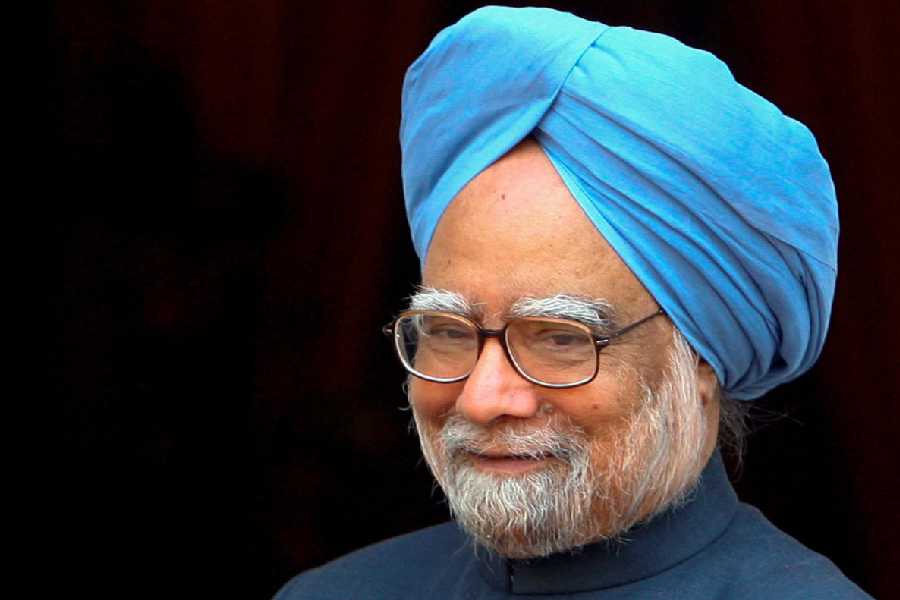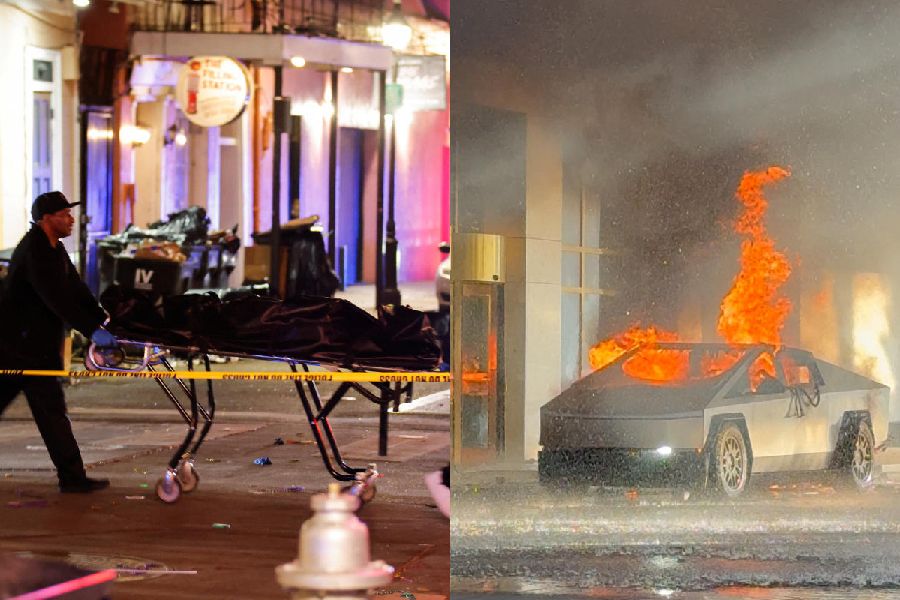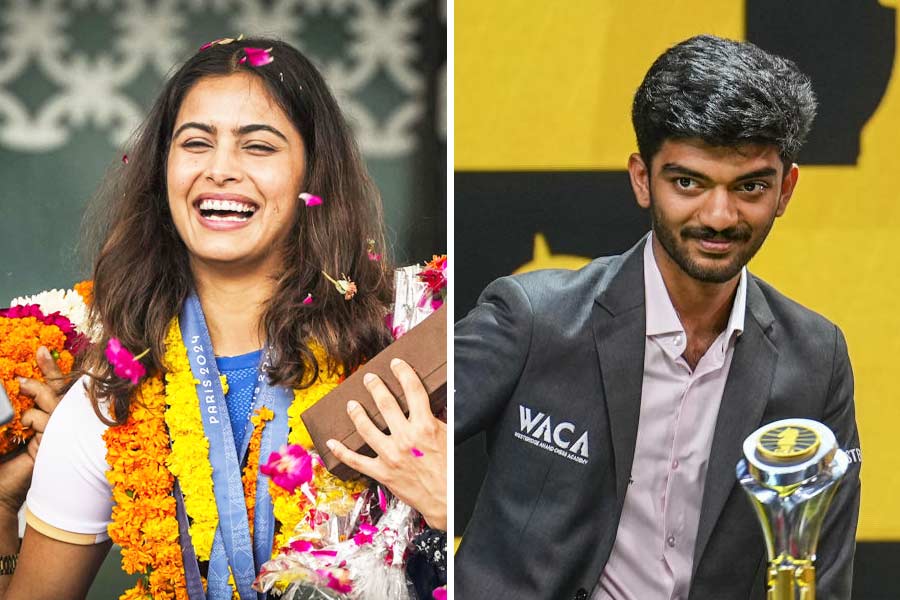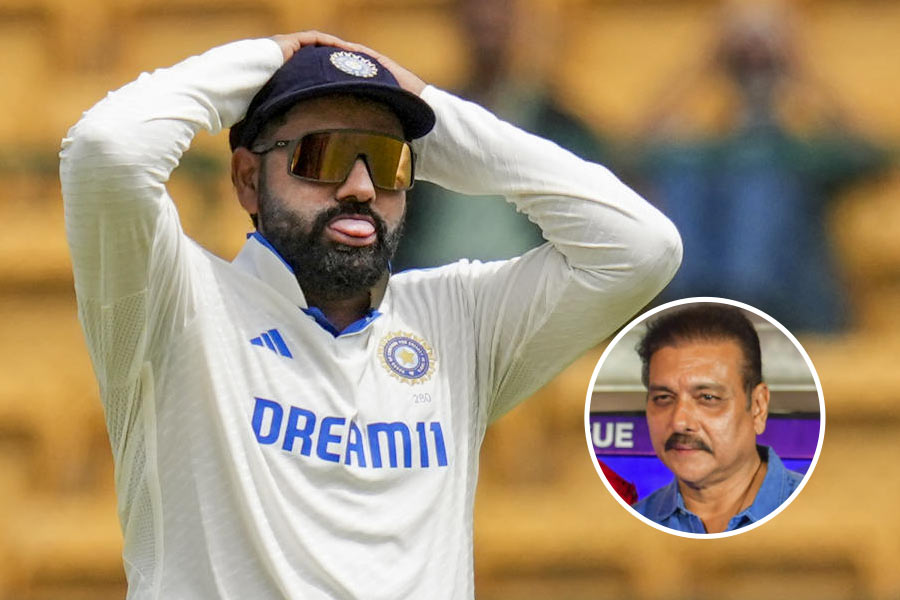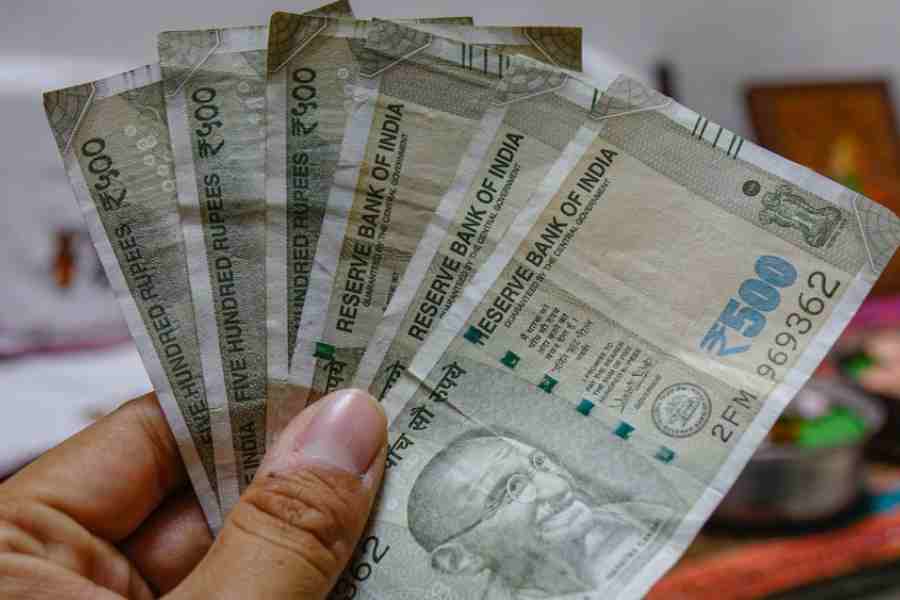Rashtrageet mein bhala kaun wah
Bharat-Bhagya-Vidhata hai
Fata suthanna pahne jiska
Gun Harcharna gaata hai…
(In the national anthem, who is the maker of India’s destiny, whose paeans Harcharna, wearing tattered clothes, sings?)
Poet Raghuvir Sahai’s lines bring out the irony of the poor singing praises of the supreme leader and also their dormant hope that the leader is committed to lifting them out of their wretched existence — and reinforce that true nationalism is the protection of Harcharna, or everyman, by the State.
In the noise about India becoming the third largest economy or an Indian becoming the second richest person in the world, Harcharna’s voice often gets drowned.
But on the eve of Independence Day, hope for an egalitarian society in which Harcharna is not forgotten by the makers of India’s destiny was rekindled when the impoverished vegetable vendor Rameshwar sat at the table with Rahul Gandhi for a meal at a Lutyens Delhi address.
Two weeks ago, Rameshwar’s tears as he turned away from the camera while telling a young journalist that he was not being able to make both ends meet — “hamaari guzar nahin ho rahi hai” — had moved thousands of YouTube viewers.
Asked why he was returning with an empty cart from Azadpur Mandi where he had arrived early in the morning to buy vegetables, he had said, “Itna paisa nahin hai. (I don’t have so much money),” blinking back tears before turning his face away.
He had come with Rs 1,000 to buy tomatoes that he would then sell from his cart, but the wholesale prices were too high. Till then, Rameshwar had kept up a smile on his face as he answered questions on the soaring tomato prices.
But when the journalist, Bhanu Kumar Jha, asked why he did not buy some other vegetable instead of returning empty-handed, the dam broke. His house rent was Rs 4,000 but he was not sure of making even Rs 100 a day now, he said. What if he bought the vegetables and they did not sell at the high prices? He would not be able to bear the loss.
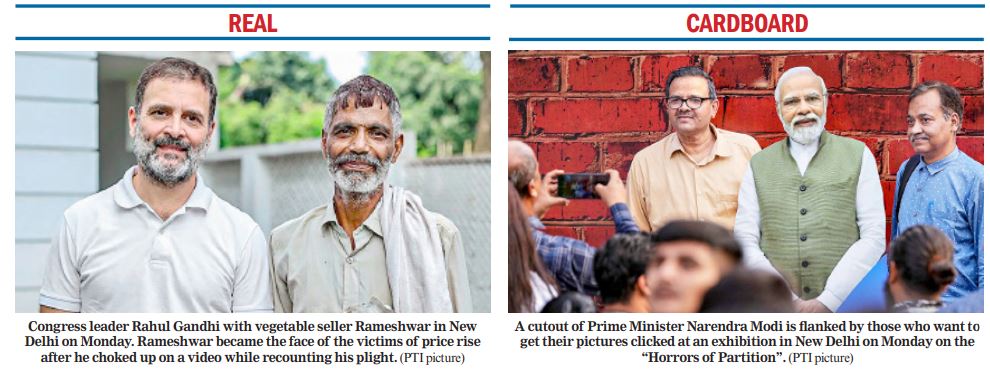
Vegetable prices have been making news for several weeks now. Figures released on Monday revealed that retail inflation had jumped to a 15-month high of 7.44 per cent in July on the back of soaring prices of vegetables and cereals.
The previous high was 7.79 per cent in April 2022. The Consumer Price Index (CPI)-based inflation was at 4.87 in June and 6.71 per cent in July 2022.
Vegetable prices rose 37 per cent on a year-on-year basis, while “cereal and product” items rose 13 per cent, according to data released by the National Statistical Office (NSO).
Inflation in the overall food basket was 11.51 per cent in July, compared with 4.55 per cent a month back and 6.69 per cent in July 2022.
Soon after Rameshwar’s video appeared, Rahul visited the Azadpur wholesale market to understand how the rising prices have affected the people in the business.
The visit carved out some space in the media for the concerns of the toiling masses amidst the grand rhetoric of Amrit Kaal. The Opposition has been trying in vain to push the real concerns into the national discourse but the glitter of government’s propaganda continues to dominate. How disconnected the public discourse is from the ground reality was pointed out in a statement Congress communications chief Jairam Ramesh issued on Monday.
Ramesh said: “The entire machinery of the Modi Government has been preoccupied with the event management of G20 to be concerned with the huge jump in the Consumer Price Inflation rate in July 2023. Growth is not accelerating, incomes aren’t rising and yet prices of all essential commodities, including vegetables, pulses, milk, and spices are zooming.
“But the Prime Minister is busy abusing, distorting and defaming his political opponents as usual.”
On Sunday, Rameshwar was seen on YouTube again, tracked down by the same reporter to his home in Jahangirpuri. His situation had not changed but he was bursting with happiness that the country had empathised with him.
“Even today, there are people who recognise the pain of the poor,” Rameshwar said, his eyes shining, thanking everyone who had felt for him. He said some people had told him he should not have spoken as he did, that prices do rise. “I said, price rise should be such that everyone can eat. Not that some people eat, and others look at their faces. I did not say anything wrong,” Rameshwar said.
In the course of the conversation, he asked the reporter: “Meri Rahul Sir se baat ho sakti hai? (Is it possible to talk to Rahul Sir?)”
“Rahul Gandhi?” the reporter asked. When Rameshwar nodded in the affirmative, the reporter asked him to speak into the camera and said the Congress leader would hear him.
He did. Rameshwar had lunch at Rahul’s residence on Monday.
Rahul, who brought the common man into the national discourse with his historic Bharat Jodo Yatra, tweeted: “Rameshwar is a lively person. He symbolises the simplicity of crores of Indians. The true ‘Bharat-Bhagya-Vidhata’ are the Indians who cheerfully strive for betterment in hostile circumstances.”
Raghuvir Sahai has the same message: that the Bharat-Bhagya-Vidhata cannot be engrossed in anything other than the welfare of the meek and the deprived.

